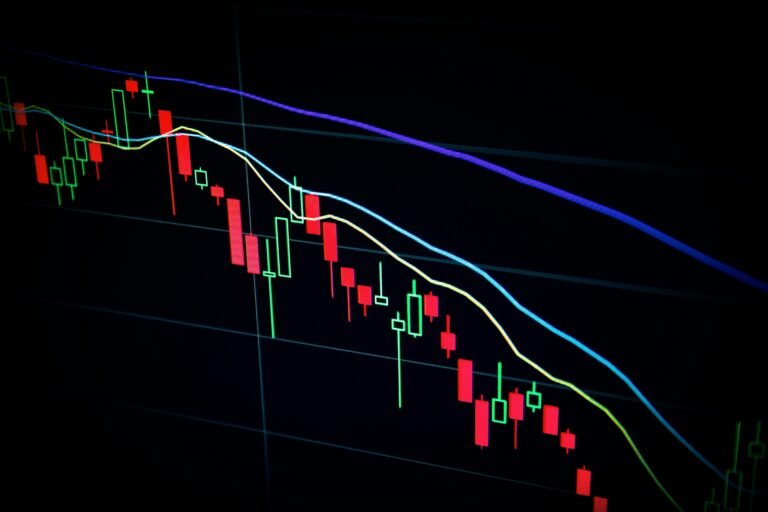Introduction to Alternative Investments
Alternative investments encompass a diverse range of assets beyond traditional stocks, bonds, and cash equivalents. These assets have gained prominence for their potential to enhance portfolio diversification and manage risk through exposure to different markets and strategies. Visit https://immediate-dominate.org if you are looking for a website that connects you to investment education firms that can help you along your investment journey.
Emerging Trends in Alternative Investments
The landscape of alternative investments is constantly evolving, reflecting shifts in global markets and investor preferences. Today, several key trends are shaping the sector:
Overview of Current Market Trends
Alternative investments are increasingly favored by institutional and individual investors seeking higher returns and lower correlation with traditional assets. According to recent data, allocations to alternatives have risen steadily, driven by growing interest in sectors such as private equity, hedge funds, and real assets.
Examples: Cryptocurrencies, Venture Capital, Peer-to-Peer Lending
Cryptocurrencies have emerged as a disruptive force in the investment landscape, offering decentralized and digital assets outside traditional financial systems. Venture capital continues to attract capital for its potential to invest in early-stage companies with high growth prospects. Peer-to-peer lending platforms facilitate direct lending between individuals or businesses, bypassing traditional financial intermediaries.
The Role of Technology in Alternative Investments
Technological advancements play a pivotal role in reshaping alternative investment strategies:
Impact of Fintech and Blockchain Technology
Fintech innovations have democratized access to alternative investments through online platforms and mobile apps, enabling retail investors to participate in opportunities previously reserved for institutions. Blockchain technology underpins cryptocurrencies and smart contracts, providing transparency, security, and efficiency in transactions.
Automation and Algorithmic Trading Strategies
Algorithmic trading utilizes mathematical models and automated systems to execute trades at high speeds and frequencies. This approach enhances liquidity, reduces transaction costs, and leverages big data analytics to identify investment opportunities and manage risks in real time.
Environmental, Social, and Governance (ESG) Factors in Alternatives
Increasingly, investors prioritize environmental, social, and governance factors in their investment decisions:
Integration of ESG Criteria in Alternative Investment Strategies
Alternative investment managers incorporate ESG considerations to align financial returns with ethical and sustainability goals. ESG-focused funds screen investments based on criteria such as carbon footprint, diversity and inclusion policies, and ethical business practices.
Case Studies of Successful ESG-Focused Funds
Notable examples include renewable energy infrastructure funds that invest in solar and wind projects, impact investing funds supporting social enterprises, and governance-focused funds advocating for transparent corporate practices and shareholder rights.
Innovative Approaches to Real Estate Investment
Real estate remains a cornerstone of alternative investments, with innovative approaches transforming the sector:
Fractional Ownership and Real Estate Crowdfunding
Fractional ownership platforms enable investors to purchase shares of properties, reducing barriers to entry and diversifying real estate portfolios. Real estate crowdfunding platforms pool capital from multiple investors to finance projects, offering potential returns from rental income and property appreciation.
Impact of PropTech on Real Estate Investment Strategies
Property technology (PropTech) integrates digital solutions such as virtual reality tours, predictive analytics, and smart building management systems. These innovations enhance property valuation, tenant engagement, and operational efficiency, thereby optimizing returns for real estate investors.
Art and Collectibles as Alternative Investments
Art and collectibles represent a niche yet lucrative segment of alternative investments:
Market Dynamics and Investment Potential
The art market combines aesthetic enjoyment with investment potential, attracting collectors and investors alike. Unique artworks and collectibles often appreciate value over time, driven by factors such as artist reputation, rarity, and historical significance.
Challenges and Opportunities in Art Market Investing
Investing in art requires expertise to navigate market volatility, authenticity concerns, and fluctuating demand trends. However, strategic acquisitions, thorough due diligence, and professional advisory services can mitigate risks and capitalize on investment opportunities.
Risk and Return Profiles of Alternative Investments
Alternative investments offer varying risk-return profiles compared to traditional asset classes:
Comparing Risk-Adjusted Returns with Traditional Assets
Alternative investments typically exhibit higher volatility but may generate superior returns over the long term. Private equity and venture capital investments, for instance, offer the potential for substantial gains but entail higher risks compared to publicly traded securities.
Strategies for Mitigating Risks in Alternative Investments
Diversification across asset classes and geographical regions is a fundamental strategy to reduce portfolio risk in alternative investments. Additionally, thorough due diligence, active portfolio management, and hedging strategies help mitigate specific risks associated with illiquid assets and market downturns.
Regulatory Landscape and Future Outlook
The regulatory environment significantly influences the growth and evolution of alternative investments:
Regulatory Challenges and Developments
Regulatory frameworks vary by jurisdiction and asset class, impacting investor protections, market transparency, and operational compliance. Emerging regulations aim to foster innovation while safeguarding market integrity and investor interests.
Predictions for the Future of Alternative Investments
Looking ahead, alternative investments are poised to continue expanding as investors seek diversification, higher returns, and innovative opportunities. Advances in technology, evolving investor preferences, and regulatory reforms will shape the future landscape of alternative investments globally.
Conclusion
Innovative approaches to alternative investments are reshaping the financial landscape, offering diverse opportunities beyond traditional asset classes. Technological advancements, including blockchain and PropTech, are democratizing access and enhancing transparency. With a focus on ESG factors and strategic risk management, investors can navigate these dynamic markets to potentially achieve higher returns while contributing to sustainable and ethical investing practices.

Daniel J. Morgan is the founder of Invidiata Magazine, a premier publication showcasing luxury living, arts, and culture. With a passion for excellence, Daniel has established the magazine as a beacon of sophistication and refinement, captivating discerning audiences worldwide.





